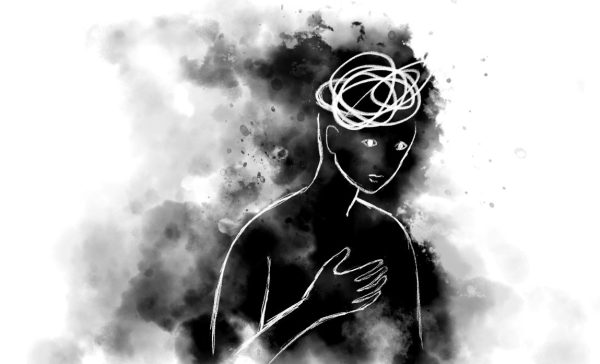The Dangers of Gaming
Can gaming lead to an addiction or disorder?

Sparktour, fair use, on Wikimedia Commons
A Player Playing PUBG Mobile
October 31, 2018
Although some games sharpen reflexes, some ruin the minds of teen. It is already confirmed by World Health Organization that “digital games can be addictive, and those addicted to them need help.”
According to the eleventh revision of the International Classification of Diseases (ICD-11), teens with a gaming disorder have trouble controlling the amount of time that they spend playing video games, which leads to negative behaviors. And, “roughly 160 million American adults play internet-based games, one recent study estimates,” according to Diagnostic and Statistical Manual, also known as the DSM-5, which is the manual used in psychiatry to identify disorders.
Most online games are competitive and challenging. As a result, they can cause teens to ignore their social life to complete a mission. Or to lose track of time in order to continue an adventure that will reward the player with valuable items upon completion.
Teens tend to prioritize video games over other activities. However, that does not mean that teens are disconnected from the community. Players tend to make communities within a specific game to communicate and help each other. “More than 2 billion people worldwide regularly play video games,” according to the Associated Press, which shows that they are not alone.
Online games that are team-based often require several people playing together and communicating to achieve a specific goal. Most of these goals require killing as many players as possible. A prime example of this type of game is “PlayerUnknown’s Battlegrounds” developed by PUBG cooperation. According to Steam, a platform for computer gamers, as of October 2018 there are currently 267,522 players, making it the third most popular game on Steam.
Most of the missions are difficult and challenging. Teens try to complete it without realizing the flow of time. It can take hours and days to complete one mission, and that is how kids develop the disorder. According to new data from the Bureau of Labor Statistics, “The typical American now spends more time playing games than volunteering, going to social events or going to church.” Some play for hours on hours without stopping for a small break, and eventually some kids continue playing without stopping.
The symptoms of a gaming disorder are easy to spot if the parent/guardian is keeping a close eye on their child. According to Diagnostic and Statistical Manual, or DSM, in 2013 a gaming disorder would require determination that persistent gaming had caused a person to have “significant issues with functioning.”
According to the DSM, the symptoms are as follows:
- Preoccupation or obsession with Internet games
- Withdrawal symptoms when not playing games
- Tolerance for gaming, so that a person needs to spend more time playing to be satisfied
- At least one failed attempt to stop or cut back on playing games
- A loss of interest in other life activities
Treatment is not well established. However, there is confirmed treatment that helps teens and adults alike. “Cognitive behavioral therapy, which focuses on identifying a problem and devising strategies and paths to resistance, works well, said Petros Levounis, an addiction specialist who chairs the Department of Psychiatry at Rutgers’s New Jersey Medical School,” according to a health and science article published in July in the Washington Post.
However, in the same article that appeared in the Washington Post, Andrew Saxon, a professor of psychiatry and behavioral science at the University Of Washington School Of Medicine in Seattle and chair of the APA’s Council on Addiction Psychiatry, said “There really hasn’t been a good study of what kind of treatment works.” He continued to say that “We’re in the realm of semi-experts giving recommendations.”
Although a video game disorder is a serious issue to teens, there has been only a small percentage of people diagnosed with the disorder. “Studies suggest that gaming disorder affects only a small proportion of people who engage in digital- or video-gaming activities,”according to World Health Organization.
However, teens should be careful about how they spend their time playing video games.


















Erin Slayton • Nov 2, 2018 at 7:31 AM
Great article, Ayman! Informative and well written!